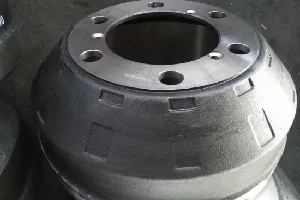
-
 Afrikaans
Afrikaans -
 Albanian
Albanian -
 Amharic
Amharic -
 Arabic
Arabic -
 Armenian
Armenian -
 Azerbaijani
Azerbaijani -
 Basque
Basque -
 Belarusian
Belarusian -
 Bengali
Bengali -
 Bosnian
Bosnian -
 Bulgarian
Bulgarian -
 Catalan
Catalan -
 Cebuano
Cebuano -
 Corsican
Corsican -
 Croatian
Croatian -
 Czech
Czech -
 Danish
Danish -
 Dutch
Dutch -
 English
English -
 Esperanto
Esperanto -
 Estonian
Estonian -
 Finnish
Finnish -
 French
French -
 Frisian
Frisian -
 Galician
Galician -
 Georgian
Georgian -
 German
German -
 Greek
Greek -
 Gujarati
Gujarati -
 Haitian Creole
Haitian Creole -
 hausa
hausa -
 hawaiian
hawaiian -
 Hebrew
Hebrew -
 Hindi
Hindi -
 Miao
Miao -
 Hungarian
Hungarian -
 Icelandic
Icelandic -
 igbo
igbo -
 Indonesian
Indonesian -
 irish
irish -
 Italian
Italian -
 Japanese
Japanese -
 Javanese
Javanese -
 Kannada
Kannada -
 kazakh
kazakh -
 Khmer
Khmer -
 Rwandese
Rwandese -
 Korean
Korean -
 Kurdish
Kurdish -
 Kyrgyz
Kyrgyz -
 Lao
Lao -
 Latin
Latin -
 Latvian
Latvian -
 Lithuanian
Lithuanian -
 Luxembourgish
Luxembourgish -
 Macedonian
Macedonian -
 Malgashi
Malgashi -
 Malay
Malay -
 Malayalam
Malayalam -
 Maltese
Maltese -
 Maori
Maori -
 Marathi
Marathi -
 Mongolian
Mongolian -
 Myanmar
Myanmar -
 Nepali
Nepali -
 Norwegian
Norwegian -
 Norwegian
Norwegian -
 Occitan
Occitan -
 Pashto
Pashto -
 Persian
Persian -
 Polish
Polish -
 Portuguese
Portuguese -
 Punjabi
Punjabi -
 Romanian
Romanian -
 Russian
Russian -
 Samoan
Samoan -
 Scottish Gaelic
Scottish Gaelic -
 Serbian
Serbian -
 Sesotho
Sesotho -
 Shona
Shona -
 Sindhi
Sindhi -
 Sinhala
Sinhala -
 Slovak
Slovak -
 Slovenian
Slovenian -
 Somali
Somali -
 Spanish
Spanish -
 Sundanese
Sundanese -
 Swahili
Swahili -
 Swedish
Swedish -
 Tagalog
Tagalog -
 Tajik
Tajik -
 Tamil
Tamil -
 Tatar
Tatar -
 Telugu
Telugu -
 Thai
Thai -
 Turkish
Turkish -
 Turkmen
Turkmen -
 Ukrainian
Ukrainian -
 Urdu
Urdu -
 Uighur
Uighur -
 Uzbek
Uzbek -
 Vietnamese
Vietnamese -
 Welsh
Welsh -
 Bantu
Bantu -
 Yiddish
Yiddish -
 Yoruba
Yoruba -
 Zulu
Zulu
Feb . 14, 2025 08:02
Back to list
drum brake squeal
Drum brake squeal can often be an unsettling and persistent issue for vehicle owners, disrupting the otherwise smooth and silent operation of an automobile. This sound, typically a high-pitched squeal, emanates from the friction and vibration occurring within the drum brakes. Understanding the mechanisms behind drum brake squeal is crucial for diagnosing and resolving the problem effectively, and maintaining the integrity and safety of your vehicle’s braking system.
Authoritative voices in the auto industry often recommend conducting regular maintenance checks as a preventative measure against drum brake squeal. This routine inspection should include cleaning the brake components to remove dust and debris, examining the brake shoes and drums for wear and tear, and ensuring that all components are securely mounted and free from corrosion. In some cases, applying an anti-squeal adhesive or lubricant to the brake components can be a temporary measure to dampen vibrations and decrease noise. Building trustworthiness with vehicle owners involves acknowledging that while drum brake squeal may not always indicate immediate danger, it should never be ignored. Persistent squealing could signal underlying issues that warrant professional diagnosis and repair. Vehicle owners are encouraged to consult with certified brake specialists who can provide a comprehensive evaluation of the braking system and recommend appropriate solutions tailored to their specific needs. In conclusion, drum brake squeal is a multifaceted issue rooted in the dynamics of friction and vibration within drum brake systems. Addressing this problem demands a blend of experience and technical expertise, emphasizing the selection of quality products and adherence to regular maintenance practices. By understanding the causes and solutions to drum brake squeal, vehicle owners can not only enhance the safety and performance of their vehicles but also enjoy a quieter, more comfortable driving experience.


Authoritative voices in the auto industry often recommend conducting regular maintenance checks as a preventative measure against drum brake squeal. This routine inspection should include cleaning the brake components to remove dust and debris, examining the brake shoes and drums for wear and tear, and ensuring that all components are securely mounted and free from corrosion. In some cases, applying an anti-squeal adhesive or lubricant to the brake components can be a temporary measure to dampen vibrations and decrease noise. Building trustworthiness with vehicle owners involves acknowledging that while drum brake squeal may not always indicate immediate danger, it should never be ignored. Persistent squealing could signal underlying issues that warrant professional diagnosis and repair. Vehicle owners are encouraged to consult with certified brake specialists who can provide a comprehensive evaluation of the braking system and recommend appropriate solutions tailored to their specific needs. In conclusion, drum brake squeal is a multifaceted issue rooted in the dynamics of friction and vibration within drum brake systems. Addressing this problem demands a blend of experience and technical expertise, emphasizing the selection of quality products and adherence to regular maintenance practices. By understanding the causes and solutions to drum brake squeal, vehicle owners can not only enhance the safety and performance of their vehicles but also enjoy a quieter, more comfortable driving experience.
Prev:
Next:
Latest news
-
What Are Drum BrakesNewsJul.07,2025
-
Understanding Brake Drum MaterialNewsJul.07,2025
-
Semi-Trailer Brake Drum: A Key Component for Extreme Loads and Long-Distance TransportNewsJul.07,2025
-
Drum Brake Pads for SaleNewsJul.07,2025
-
Brake Drums for SaleNewsJul.07,2025
-
Brake Drum ManufacturerNewsJul.07,2025
-
Aluminum Brake Drums: The Future of High-Performance CarsNewsJul.07,2025
